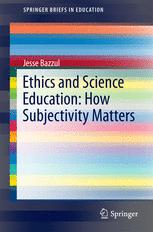

Most ebook files are in PDF format, so you can easily read them using various software such as Foxit Reader or directly on the Google Chrome browser.
Some ebook files are released by publishers in other formats such as .awz, .mobi, .epub, .fb2, etc. You may need to install specific software to read these formats on mobile/PC, such as Calibre.
Please read the tutorial at this link: https://ebookbell.com/faq
We offer FREE conversion to the popular formats you request; however, this may take some time. Therefore, right after payment, please email us, and we will try to provide the service as quickly as possible.
For some exceptional file formats or broken links (if any), please refrain from opening any disputes. Instead, email us first, and we will try to assist within a maximum of 6 hours.
EbookBell Team

4.3
78 reviewsThis book encapsulates a line of research that looks at how students are positioned as ethical actors/decision makers in biology education by science policy, curriculum, and classroom resources. Its basis comes from a textbook study that examined how biology texts work to constitute subjectivities related to neoliberalism and global capitalism, sex/gender and sexuality, and ethics. The study found that textbook discourses set limits on a) the types of ethical concerns represented b) the modes of ethical engagement c) the dispositions necessary to engage in ethical action or decision-making. Policy reform, regulation, and personal lifestyle choices were the primary ways students could approach ethical decision-making or action. While these approaches are useful, they are likely not sufficient for dealing with major twenty first century problems such as climate change and social inequality, along with new ethical dimensions introduced by biotechnologies and genomic research. This research brief sets a context for how discourses of science education policy and curricula work to shape a ‘subject of ethics’, that is how students come to see themselves as participants in issues of ethical concern. Drawing from a structural-poststructural philosophical approach, Science and Technology Studies, educational research, and a methodology based on discourse analysis and ethnography, this book's overall goal is to assist with research into subjectivity, ethics, politics, policy, and socioscientific issues in science education.